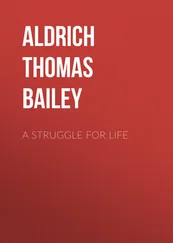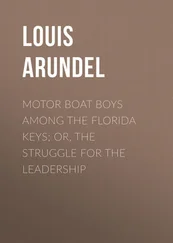Чарльз Дарвин - The Origin of Species by Means of Natural Selection Or, the Preservation of Favoured Races in the Struggle for Life
Здесь есть возможность читать онлайн «Чарльз Дарвин - The Origin of Species by Means of Natural Selection Or, the Preservation of Favoured Races in the Struggle for Life» весь текст электронной книги совершенно бесплатно (целиком полную версию без сокращений). В некоторых случаях можно слушать аудио, скачать через торрент в формате fb2 и присутствует краткое содержание. Год выпуска: 1999, Жанр: Биология, на английском языке. Описание произведения, (предисловие) а так же отзывы посетителей доступны на портале библиотеки ЛибКат.
- Название:The Origin of Species by Means of Natural Selection Or, the Preservation of Favoured Races in the Struggle for Life
- Автор:
- Жанр:
- Год:1999
- ISBN:нет данных
- Рейтинг книги:3 / 5. Голосов: 1
-
Избранное:Добавить в избранное
- Отзывы:
-
Ваша оценка:
- 60
- 1
- 2
- 3
- 4
- 5
The Origin of Species by Means of Natural Selection Or, the Preservation of Favoured Races in the Struggle for Life: краткое содержание, описание и аннотация
Предлагаем к чтению аннотацию, описание, краткое содержание или предисловие (зависит от того, что написал сам автор книги «The Origin of Species by Means of Natural Selection Or, the Preservation of Favoured Races in the Struggle for Life»). Если вы не нашли необходимую информацию о книге — напишите в комментариях, мы постараемся отыскать её.
The Origin of Species by Means of Natural Selection Or, the Preservation of Favoured Races in the Struggle for Life — читать онлайн бесплатно полную книгу (весь текст) целиком
Ниже представлен текст книги, разбитый по страницам. Система сохранения места последней прочитанной страницы, позволяет с удобством читать онлайн бесплатно книгу «The Origin of Species by Means of Natural Selection Or, the Preservation of Favoured Races in the Struggle for Life», без необходимости каждый раз заново искать на чём Вы остановились. Поставьте закладку, и сможете в любой момент перейти на страницу, на которой закончили чтение.
Интервал:
Закладка:
I may give one other case: so confidently did I expect occasionally to find gradations of important structures between the different castes of neuters in the same species, that I gladly availed myself of Mr. F. Smith's offer of numerous specimens from the same nest of the driver ant (Anomma) of West Africa. The reader will perhaps best appreciate the amount of difference in these workers by my giving, not the actual measurements, but a strictly accurate illustration: the difference was the same as if we were to see a set of workmen building a house, of whom many were five feet four inches high, and many sixteen feet high; but we must in addition suppose that the larger workmen had heads four instead of three times as big as those of the smaller men, and jaws nearly five times as big. The jaws, moreover, of the working ants of the several sizes differed wonderfully in shape, and in the form and number of the teeth. But the important fact for us is that, though the workers can be grouped into castes of different sizes, yet they graduate insensibly into each other, as does the widely-different structure of their jaws. I speak confidently on this latter point, as Sir J. Lubbock made drawings for me, with the camera lucida, of the jaws which I dissected from the workers of the several sizes. Mr. Bates, in his interesting "Naturalist on the Amazons," has described analogous cases.
With these facts before me, I believe that natural selection, by acting on the fertile ants or parents, could form a species which should regularly produce neuters, all of large size with one form of jaw, or all of small size with widely different jaws; or lastly, and this is the greatest difficulty, one set of workers of one size and structure, and simultaneously another set of workers of a different size and structure; a graduated series having first been formed, as in the case of the driver ant, and then the extreme forms having been produced in greater and greater numbers, through the survival of the parents which generated them, until none with an intermediate structure were produced.
An analogous explanation has been given by Mr. Wallace, of the equally complex case, of certain Malayan butterflies regularly appearing under two or even three distinct female forms; and by Fritz Muller, of certain Brazilian crustaceans likewise appearing under two widely distinct male forms. But this subject need not here be discussed.
I have now explained how, I believe, the wonderful fact of two distinctly defined castes of sterile workers existing in the same nest, both widely different from each other and from their parents, has originated. We can see how useful their production may have been to a social community of ants, on the same principle that the division of labour is useful to civilised man. Ants, however, work by inherited instincts and by inherited organs or tools, while man works by acquired knowledge and manufactured instruments. But I must confess, that, with all my faith in natural selection, I should never have anticipated that this principle could have been efficient in so high a degree, had not the case of these neuter insects led me to this conclusion. I have, therefore, discussed this case, at some little but wholly insufficient length, in order to show the power of natural selection, and likewise because this is by far the most serious special difficulty which my theory has encountered. The case, also, is very interesting, as it proves that with animals, as with plants, any amount of modification may be effected by the accumulation of numerous, slight, spontaneous variations, which are in any way profitable, without exercise or habit having been brought into play. For peculiar habits, confined to the workers of sterile females, however long they might be followed, could not possibly affect the males and fertile females, which alone leave descendants. I am surprised that no one has advanced this demonstrative case of neuter insects, against the well-known doctrine of inherited habit, as advanced by Lamarck.
SUMMARY.
I have endeavoured in this chapter briefly to show that the mental qualities of our domestic animals vary, and that the variations are inherited. Still more briefly I have attempted to show that instincts vary slightly in a state of nature. No one will dispute that instincts are of the highest importance to each animal. Therefore, there is no real difficulty, under changing conditions of life, in natural selection accumulating to any extent slight modifications of instinct which are in any way useful. In many cases habit or use and disuse have probably come into play. I do not pretend that the facts given in this chapter strengthen in any great degree my theory; but none of the cases of difficulty, to the best of my judgment, annihilate it. On the other hand, the fact that instincts are not always absolutely perfect and are liable to mistakes; that no instinct can be shown to have been produced for the good of other animals, though animals take advantage of the instincts of others; that the canon in natural history, of "Natura non facit saltum," is applicable to instincts as well as to corporeal structure, and is plainly explicable on the foregoing views, but is otherwise inexplicable—all tend to corroborate the theory of natural selection.
This theory is also strengthened by some few other facts in regard to instincts; as by that common case of closely allied, but distinct, species, when inhabiting distant parts of the world and living under considerably different conditions of life, yet often retaining nearly the same instincts. For instance, we can understand, on the principle of inheritance, how it is that the thrush of tropical South America lines its nest with mud, in the same peculiar manner as does our British thrush; how it is that the Hornbills of Africa and India have the same extraordinary instinct of plastering up and imprisoning the females in a hole in a tree, with only a small hole left in the plaster through which the males feed them and their young when hatched; how it is that the male wrens (Troglodytes) of North America, build "cock-nests," to roost in, like the males of our Kitty-wrens,—a habit wholly unlike that of any other known bird. Finally, it may not be a logical deduction, but to my imagination it is far more satisfactory to look at such instincts as the young cuckoo ejecting its foster-brothers, ants making slaves, the larvae of ichneumonidae feeding within the live bodies of caterpillars, not as specially endowed or created instincts, but as small consequences of one general law leading to the advancement of all organic beings—namely, multiply, vary, let the strongest live and the weakest die.
CHAPTER IX.
HYBRIDISM.
Distinction between the sterility of first crosses and of hybrids—Sterility various in degree, not universal, affected by close interbreeding, removed by domestication—Laws governing the sterility of hybrids—Sterility not a special endowment, but incidental on other differences, not accumulated by natural selection—Causes of the sterility of first crosses and of hybrids—Parallelism between the effects of changed conditions of life and of crossing—Dimorphism and trimorphism—Fertility of varieties when crossed and of their mongrel offspring not universal—Hybrids and mongrels compared independently of their fertility—Summary.
The view commonly entertained by naturalists is that species, when intercrossed, have been specially endowed with sterility, in order to prevent their confusion. This view certainly seems at first highly probable, for species living together could hardly have been kept distinct had they been capable of freely crossing. The subject is in many ways important for us, more especially as the sterility of species when first crossed, and that of their hybrid offspring, cannot have been acquired, as I shall show, by the preservation of successive profitable degrees of sterility. It is an incidental result of differences in the reproductive systems of the parent-species.
Читать дальшеИнтервал:
Закладка:
Похожие книги на «The Origin of Species by Means of Natural Selection Or, the Preservation of Favoured Races in the Struggle for Life»
Представляем Вашему вниманию похожие книги на «The Origin of Species by Means of Natural Selection Or, the Preservation of Favoured Races in the Struggle for Life» списком для выбора. Мы отобрали схожую по названию и смыслу литературу в надежде предоставить читателям больше вариантов отыскать новые, интересные, ещё непрочитанные произведения.
Обсуждение, отзывы о книге «The Origin of Species by Means of Natural Selection Or, the Preservation of Favoured Races in the Struggle for Life» и просто собственные мнения читателей. Оставьте ваши комментарии, напишите, что Вы думаете о произведении, его смысле или главных героях. Укажите что конкретно понравилось, а что нет, и почему Вы так считаете.












